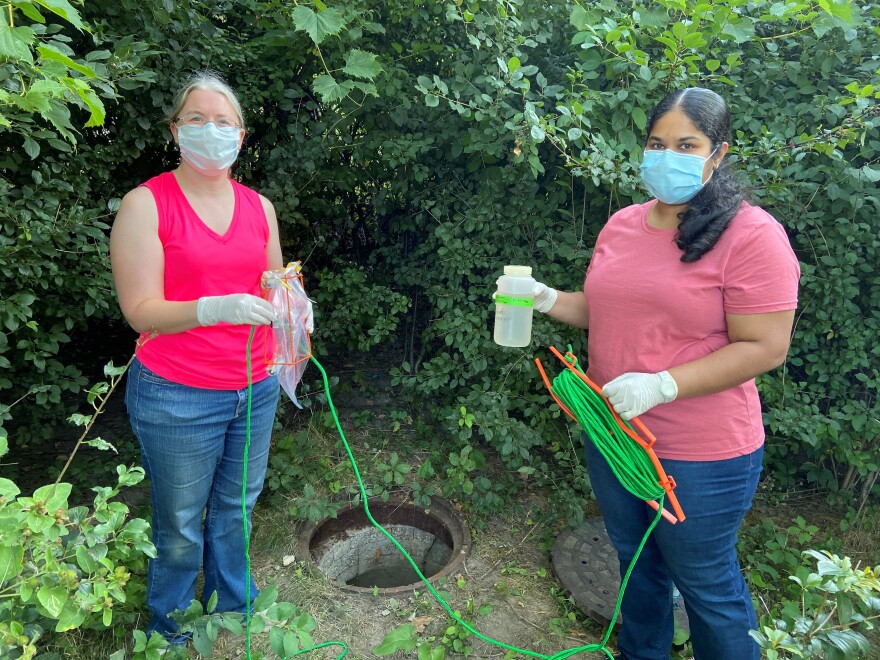Scientists at Michigan State University are trying to develop an early COVID-19 detection strategy by sampling larger groups of people without individual tests.
A Secluded Spot
On a clear August morning, Rebecca Ives unloads a green pickup at a secluded lot on the edge of Michigan State University and ventures out into a thick grassy field.

Carrying a sterile plastic bag affixed to a wire frame, Ives heads directly to a manhole concealed in the weeds. She’s here for a water sample.
“This is a low occupancy area, so it should be our lowest detection site on campus,” Ives explains.
Ives is scanning the MSU sewer system for traces of COVID-19.
Researchers believe the virus becomes inactive in a person’s intestinal tract even before it gets to the water.
The Lab Scan
Ives works with water microbiologist Dr. Joan Rose. Her work during the Flint Water Crisis helped area hospitals track cases of Legionnaire’s disease.
Rose says wastewater samples can be traced through the pipe system back to individual buildings.
“If we can find out where the manhole is and where that pipe is, we can actually sample wastewater coming from a very specific location.”
We were seeing a large spike in our samples before anybody knew that it was going on.
Using digital scanning, Rose’s team replicates the virus RNA to a detectable level that shows up as fluorescent light.
They even found the Harper’s Restaurant and Brew Pub outbreak that affected some 185 people.
“We actually picked up the outbreak from the East Lansing bar on June 15 before it was announced on June 23,” says lab technician Matthew Flood. “So, we were seeing a large spike in our samples before anybody knew that it was going on.”

Flood says if signs of COVID-19 appear, MSU can contact local health departments to warn them before new cases begin to emerge.
“We (can) say it looks like you’re going to get more cases out of this community or this area coming up in within the next two to 14 days,” he says.
The wastewater business plays a big role in the public health infrastructure. Rose says she’s seeing the industry stepping forward to help solve the coronavirus crisis. She says the partnership between wastewater and public health labs is a global effort that requires a lot of coordination.
“We’re going to share methods, we’re going to share results…we’re going to do everything we can to decrease the spread of this particular virus,” Rose says.
MSU continues to take weekly water samples. The state of Michigan is now asking local health departments to participate in a three-month pilot program to monitor wastewater for COVID-19.




